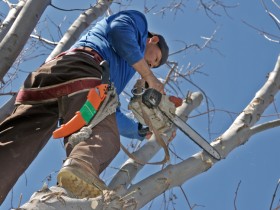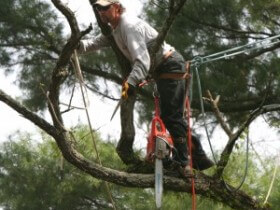Gardening is a surprisingly complicated subject at times. Choosing to garden organically means learning about many details, such as your soil’s acidity or what sort of insects live in your garden. If you are inexperienced with horticulture, making the switch to organic methods may be a challenge for you. By reading the tricks in this article, you will find yourself better prepared to grow your food organically.
If you work with clay soil, you have probably found using a shovel very frustrating and exhausting. Use a thin coat of floor or car wax on your shovel, then buff it with a nice clean cloth to make dealing with clay soil easier. The clay will no longer stick to the shovel, and this also helps to prevent other problems like rusting.
Choose perennials that won’t be taken out by slugs. Slugs or snails can kill a plant very quickly. Certain perennials that don’t have tough leaves are especially tasty to snails and slugs. You can discourage snails and slugs from eating your perennials by choosing plants with tougher or distasteful foliage. Wonderful varieties of such perennials include euphorbia, campanula, helleborus, achillea, and heuchera.
Soil Needs
Your soil needs to be of good quality before you start a garden. Pay a small fee to have your soil analyzed, and you’ll be glad that you did when you understand what nutrients your soil is lacking. Many Cooperative Extension offices will provide this service, and it is well worth knowing exactly what the soil needs to avoid ruining a crop or two.
CO2 is essential for growth. When exposed to high levels of CO2, most types of plants will grow better. The best way to obtain a saturated level of carbon dioxide (CO2) is to use a greenhouse. CO2 levels are best kept high, in order to provide optimal growing conditions for your plants.
While caring for your garden in the fall, you will want to keep a lookout for stinkbugs. Stink bugs are attracted to tomatoes, beans and most fruits. If you do not check, they do a lot of damage to plants so try to get rid of them if you can.
Don’t mow your grass too short. If you allow your grass to grow a little longer, the roots will go down deeper into the dirt, helping the grass grow better and remain hydrated. The shorter the grass, the shallower the roots, which makes the lawn more likely to develop brown patches.
Try dousing weeds in your garden with boiling water to get rid of them. A pot of boiling hot water can be one of the most safe weed destroyers. Pour boiling water over the weeds to kill them, but make sure not to pour the water over any plants you don’t want to kill. What this does it essentially kill the weeds by damaging their roots. The result is that those weeds are unlikely to regrow.
Now, you shouldn’t get your hopes up and believe that a few tips are going to turn you into an instant professional gardener. However, these tips are a great starting point if you do plan to grow organically. As you implement these tips and hone your skills, you’ll be a professional green-thumb-holder in no time.
Most people want to know about mdyhome.com, but do not always know how to go about it on there own. Luckily, the following article has some great information to help you get started. Now is the time to take the knowledge you have gained and apply it to your life!




